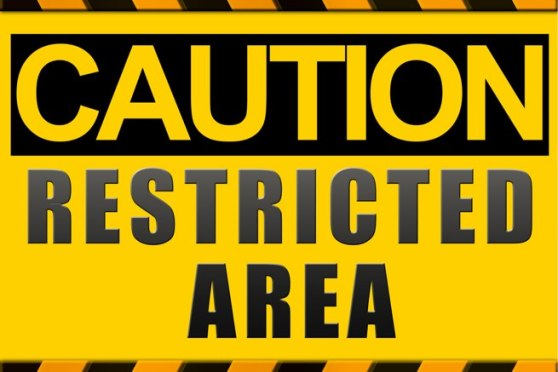Regulation A Form 1-A Offering Circular Disclosures – Going Public Lawyers

Regulation A Form 1-A Offering Statements require line item disclosure of information about the issuer and the offering. Form 1-A is subject to a full review by the SEC. Regulation A offerings can be used in combination with direct public offerings and initial public offerings as part of a Going Public Transaction. Regulation A+ simplifies the process of obtaining the seed stockholders required by the Financial Industry Regulatory Authority while allowing the issuer to raise initial capital. Issuers conducting Regulation A+ offerings must provide the disclosures required by Form 1-A. Regulation A + Form 1-A consists of the following three parts:
- Part I: an eXtensible Markup Language (XML) based fillable form, which captures key information about the Issuer and its offering using an easy to complete online form, similar to Form D, with drop-down menus, indicator boxes or buttons, and text boxes, and assists Issuers in determining their ability to rely on the exemption. The XML-based fillable form will provide a convenient means of assembling and transmitting information to EDGAR, without requiring the Issuer to purchase or maintain additional software or technology;
- Part II: a text file attachment containing the body of the disclosure document and financial statements, formatted in HyperText Markup Language (HTML) or American Standard Code for Information Interchange (ASCII) to be compatible with the EDGAR filing system; and
- Part III: text file attachments, containing the signatures, exhibits index, and the exhibits to the offering statement, formatted in HTML or ASCII to be compatible with the EDGAR filing system.
Rule 506(c) Accredited Crowdfunding Offering Requirements – Crowdfunding Attorneys

Rule 506 Offerings are the most common of the Regulation D exemptions from registration under the Securities Act of 1933, as amended (the “Securities Act”). Rule 506 contains two distinct offering exemptions. Rule 506(b) and Rule 506(c). Rule 506 (b) provides an exemption to an unlimited number of accredited investors and up to thirty-five non-accredited investors without the use of general solicitation and advertising while Rule 506(c) allows the issuer to sell to an unlimited number of accredited investors so long as it verifies that each investors is an accredited investor. Read More
Regulation A l The Colossal Exemption l Securities Lawyer 101


Overview of the Regulation A Exemption
The Regulation A offering exemption provides investors with more investment choices and issuers with more capital raising options during their going public transactions. Regulation A is mandated by Title IV of the Jumpstart Our Business Startups (JOBS) Act. The Regulation A exemption provides for two distinct offering exemptions. Tier 1 of Regulation A provides an exemption from SEC registration for offerings of up to $20 million. Tier 2 exempts offerings up to $50 million. One of the most notable differences between the two Regulation A+ tiers is that issuers that conduct a Tier 2 offering will become subject to ongoing Regulation A reporting obligations, though such obligations are significantly less burdensome than those that apply to SEC reporting issuers filing Form S-1 Registration Statements.
Regulation A can be used in combination with direct public offerings and initial public offerings as part of a Going Public Transaction. The exemption simplifies the process of obtaining the seed stockholders required by the Financial Industry Regulatory Authority while allowing the issuer to raise initial capital. Regulation A has had a notable impact on companies going public. One key benefit of Regulation A is that companies using Regulation A can comply with scaled down public company SEC reporting requirements. If the company wants to become a fully reporting company, Regulation A allows them to file a Form 8-A to register a class of securities. Unlike Form 10, Registration on Form 8-A if effective upon filing.
SEC Charges Former Seaworld Associate General Counsel, Paul Powers with Insider Trading
On April 10, 2019, the SEC charged Paul Powers, a former senior lawyer at SeaWorld Entertainment Inc with insider trading based on nonpublic information that the company’s revenue would be better than anticipated for the second quarter of 2018.
The SEC alleges that Paul Powers had early access to key revenue information as the company’s associate general counsel and assistant secretary, and he purchased 18,000 shares of SeaWorld stock the day after he received a confidential draft of the 2018 second quarter earnings release that detailed a strong financial performance by the company after a lengthy period of decline. According to the SEC’s complaint, Paul Powers immediately sold his SeaWorld shares for approximately $65,000 in illicit profits after the company announced its positive earnings and the company’s stock price increased by 17 percent. Read More
Final Judgment Against Robert DePalo, a Broker Charged with Stealing from Investors
On February 5, 2019, the SEC obtained a final judgment against a New York-based broker, Robert DePalo who was charged with orchestrating a $6.5 million offering fraud.
In May 2015, the SEC charged Robert DePalo with defrauding over twenty investors by misrepresenting the value of their investments and use of their funds, including by sending the first $2.3 million of investor funds to his personal bank account. The SEC also alleged that Robert DePalo made false statements to SEC examiners in an attempt to conceal the fraud. Read More
SEC Charges College Official for Fraudulently Concealing Financial Troubles from Investors
On March 28, 2019, the SEC charged Keith Borge, the former controller of a New York-based not-for-profit college with defrauding municipal securities investors by fraudulently concealing the college’s deteriorating finances.
According to the SEC’s complaint, in recent years, the College of New Rochelle came under considerable financial stress because of declining student enrollment and plummeting revenue from tuition. To hide the college’s deteriorating financial condition from investors, the college’s former controller, Keith Borge, created false financial records, didn’t file payroll tax submissions, and didn’t assess the collectability of pledged donations that were increasingly unlikely to be received as donors became more frustrated with the college’s operations. Keith Borge’s misconduct resulted in the college’s financial statements for its 2015 fiscal year falsely overstating net assets by almost $34 million. Keith Borge also falsely certified the accuracy of the college’s financial statements. The financial statements were published by Keith Borge to an online repository in connection with the College’s continuing disclosure obligations stemming from a 1999 bond issuance, and significantly influenced investors’ decisions to invest in the bonds. Read More
SEC Shuts Down Fraudulent Investment Advisor Who Was Targeting the Israeli-American Community
The SE announced on April 1, 2019 that it had halted an ongoing investment fraud by Investment Advisor Motty Mizrahi targeting members of the Jewish community, primarily in the Los Angeles, California region.
The SEC filed an emergency action in federal court against Motty Mizrahi and MBIG Company, his sole proprietorship, alleging that, since June 2012, they defrauded at least 15 advisory clients out of more than $3 million. According to the SEC’s complaint, unsealed on March 29, 2019, Motty Mizrahi falsely claimed that MBIG used sophisticated trading strategies to generate “guaranteed” returns of between 2-3% per month, the investments were risk-free, and clients would not lose their money and could withdraw their funds at any time. Unbeknownst to his clients, however, MBIG had no bank or brokerage account of its own – rather, clients unwittingly sent money to Motty Mizrahi’s personal bank account. Motty Mizrahi used the money to fund his personal brokerage account, in which he engaged in high-risk options trading producing losses of more than $2.2 million, and to pay personal expenses. The SEC alleges that Motty Mizrahi covered up his fraud by issuing MBIG’s clients fabricated account statements, showing positive account balances and profits from trading. When clients demanded proof of MBIG’s securities holdings, Motty Mizrahi showed them brokerage statements reflecting a multi-million dollar balance for a fictitious MBIG brokerage account. Read More
SEC Charges Investment Adviser with Long-Running Securities Fraud
On March 22, 2019, the SEC charged registered investment adviser Direct Lending Investments, LLC with a multi-year fraud that resulted in approximately $11 million in over-charges of management and performance fees to its private funds, as well as the inflation of the private funds’ returns.
According to the SEC’s complaint, Direct Lending advises a combination of private funds that invest in various lending platforms, including QuarterSpot, Inc., an online small business lender. The SEC alleges that for years, Brendan Ross, Direct Lending Investments’s owner and then-chief executive officer, arranged with QuarterSpot to falsify borrower payment information for QuarterSpot’s loans and to falsely report to Direct Lending that borrowers made hundreds of monthly payments when, in fact, they had not. The SEC alleges that many of these loans should have been valued at zero, but instead were improperly valued at their full value, because of the false payments Ross helped engineer. As a result, between 2014 and 2017, Direct Lending cumulatively overstated the valuation of its QuarterSpot position by approximately $53 million and misrepresented the Funds’ performance by approximately two to three percent annually. The SEC alleges that Direct Lending collected approximately $11 million in excess management and performance fees from the Funds that it would not have otherwise collected, had the QuarterSpot position been accurately valued. Read More
SEC Settles with James K. McKillop, Unregistered Public Shell Company Broker
On March 26, 2019 the SEC filed settled charges against recidivist James K. McKillop for acting as an unregistered broker and for failing to timely file required beneficial ownership forms in connection with his position at Tiber Creek Corp. The SEC also separately filed related settled administrative charges against Tiber Creek and Tiber Creek’s president, James M. Cassidy.
According to the SEC’s complaint and the SEC’s order, Tiber Creek maintained an inventory of SEC-registered public shell companies, for which James McKillop and James Cassidy served as the officers, directors, and fifty percent shareholders. The SEC alleges that since July 2012, James McKillop and James Cassidy effected securities transactions through Tiber Creek for more than 100 public shell companies without being registered as brokers. The complaint also alleges that on more than 110 occasions, James McKillop and James Cassidy failed to timely file required beneficial ownership reports, including Schedules 13G and Forms 4, in connection with the public shell companies. Read More
SEC Speaks Reverse Mergers – Going Public
On March 8, 2019, Securities and Exchange Commission (SEC) Chairman Jay Clayton and Brett Redfearn, Director of the agency’s Division of Trading and Markets, spoke at Fordham University’s Gabelli School of Business in New York City. They addressed a variety of topics, but a few points of interest stood out including their discussion of reverse mergers in going public transactions. One was the need to do more to combat retail investor fraud. That had been the subject of a lively roundtable discussion that took place at SEC headquarters in Washington on September 26, 2018. Clayton and Redfearn wanted to discuss the conclusions drawn from that and two other roundtables convened in 2018, and to suggest new directions, along with some plans for reform, for 2019.
Clayton stressed, as he had at the roundtable, his fidelity to five principles that serve as his guide. They are: Read More
Former COO Fraudulently Caused Advisory Firm to Overbill Clients
The SEC filed on March 28, 2019 charges against the former Chief Operating Officer (COO), Richard Diver of a Commission-registered investment adviser for aiding and abetting the advisory firm’s actions to overbill its clients as part of a fraudulent scheme to improperly inflate his own pay.
According to the SEC’s complaint, between 2011 and December 2018, former COO Richard Diver, a resident of Spring Lake, New Jersey, engaged in an illicit scheme to steal approximately $6 million from his employer. Richard Diver, whose duties included managing the advisory firm’s payroll and client billing functions, allegedly inflated his salary by hundreds of thousands of dollars per year. As part of this scheme, Richard Diver defrauded investors by causing the investment adviser to overbill more than 300 investment advisory client accounts by approximately $750,000, for the purpose of generating additional revenue. As alleged in the complaint, Richard Diver used this revenue to finance his inflated salary and when confronted by the investment adviser’s CEO in December 2018, Richard Diver confessed to having carried out the scheme. Read More
SEC Halts Ponzi Scheme Targeting Vietnamese Investors
The SEC announced fraud charges and an asset freeze on March 18, 2019, against the operators of a $25 million Ponzi scheme falsely promising high annual returns with minimal to no risk to investors in the Vietnamese community of Orange County, California.
The SEC alleges that Kent R.E. Whitney founded The Church for the Healthy Self three months after being released from federal prison for orchestrating a prior investment scheme involving commodities. According to the SEC, the Church for the Healthy Self’s investment program, CHS Trust, promised investors tax-deductible, guaranteed, and insured returns of at least 12%, through reinsurance investments and options trading. Read More
What is a NYSE Control Company Anyway? NYSE Attorneys

Public Companies that qualify as a “Controlled Company” with securities listed on the Nasdaq Stock Market (NASDAQ) or the New York Stock Exchange (NYSE), must comply with the exchange’s continued listing standards to maintain their listings. NASDAQ and the NYSE have adopted qualitative listing standards. Companies that do not comply with these corporate governance requirements may lose their listing status.
Under NASDAQ and NYSE rules a “controlled company” is a company with more than 50% of its voting power held by a single person, entity or group. Under NYSE and NASDAQ rules, a controlled company is exempt from certain corporate governance requirements including:
- the requirement that a majority of the board of directors consist of independent directors;
- the requirement that a listed company have a nominating and governance committee that is composed entirely of independent directors with a written charter addressing the committee’s purpose and responsibilities;
- the requirement that a listed company have a compensation committee that is composed entirely of independent directors with a written charter addressing the committee’s purpose and responsibilities;
- the requirement for an annual performance evaluation of the nominating and governance committee and compensation committee.
Do State Blue Sky Laws Apply To Rule 506(c) Offerings? Going Public Lawyers
Issuers are often unaware of the state laws that apply to their private placements prior to completion of their going public transactions. Federal securities laws require that the purchase or sale of a security be subject to a registration statement under the Securities Act of 1933 (the “Securities Act”) or exemptfrom registration. Rule 506 of Regulation D under the Securities Act provides an exemption for private placement offerings. The JOBS Act amended Rule 506 by creating Rule 506(c) which allows general solicitation and advertising in private placement offerings so long as sales are made only to accredited investors.
Issuers conducting any offer or sale of securities must consider state blue sky laws that may be relevant to their offering. Securities offerings under Rule 506 are deemed to be covered securities under the federal law, which preempts the states from substantively regulating Rule 506 offerings under state securities or blue sky laws. Read More































